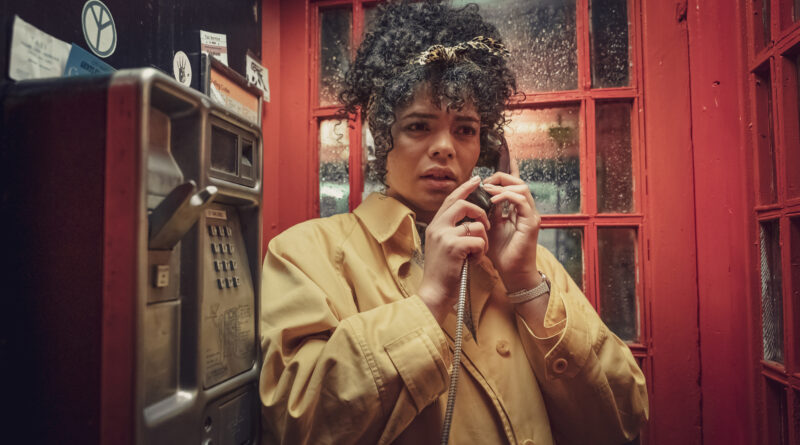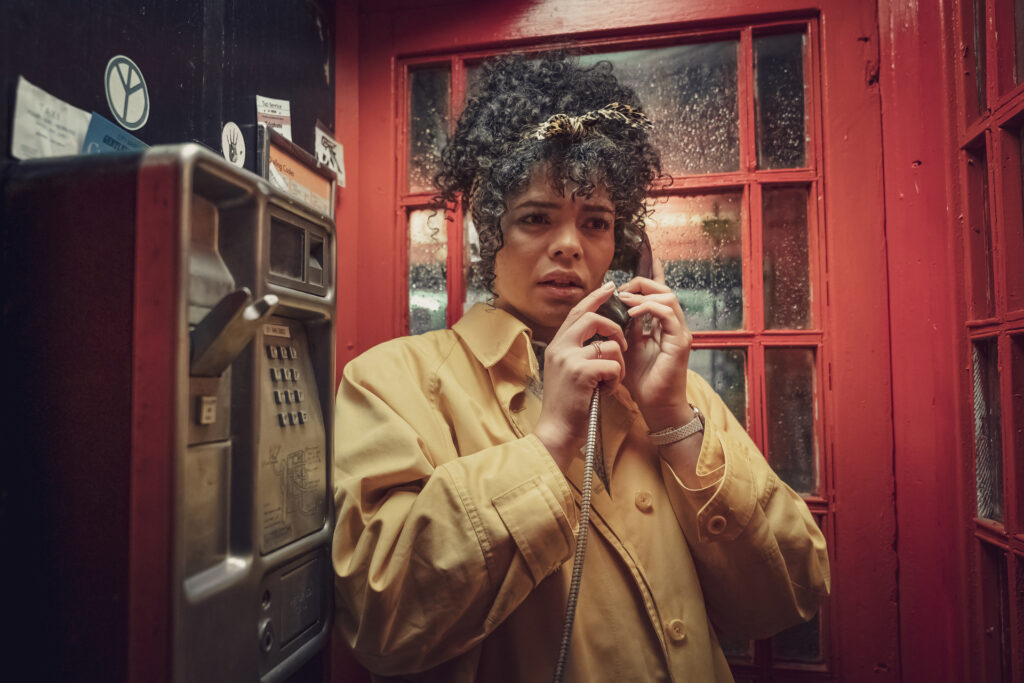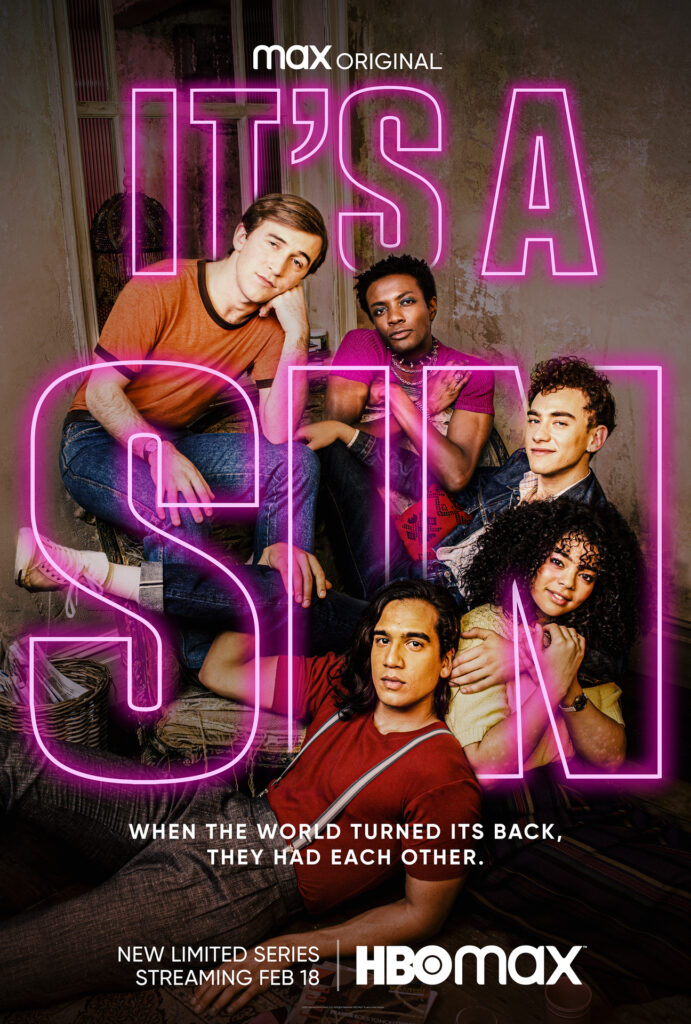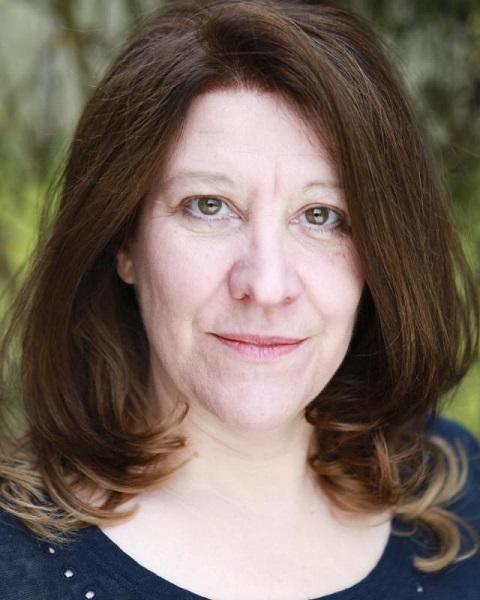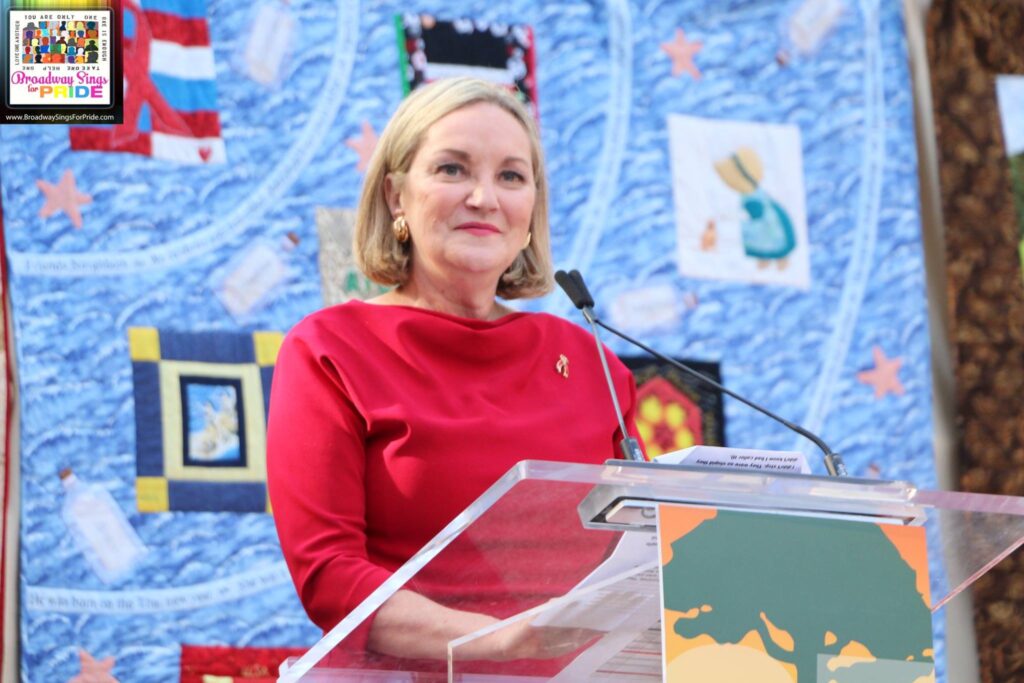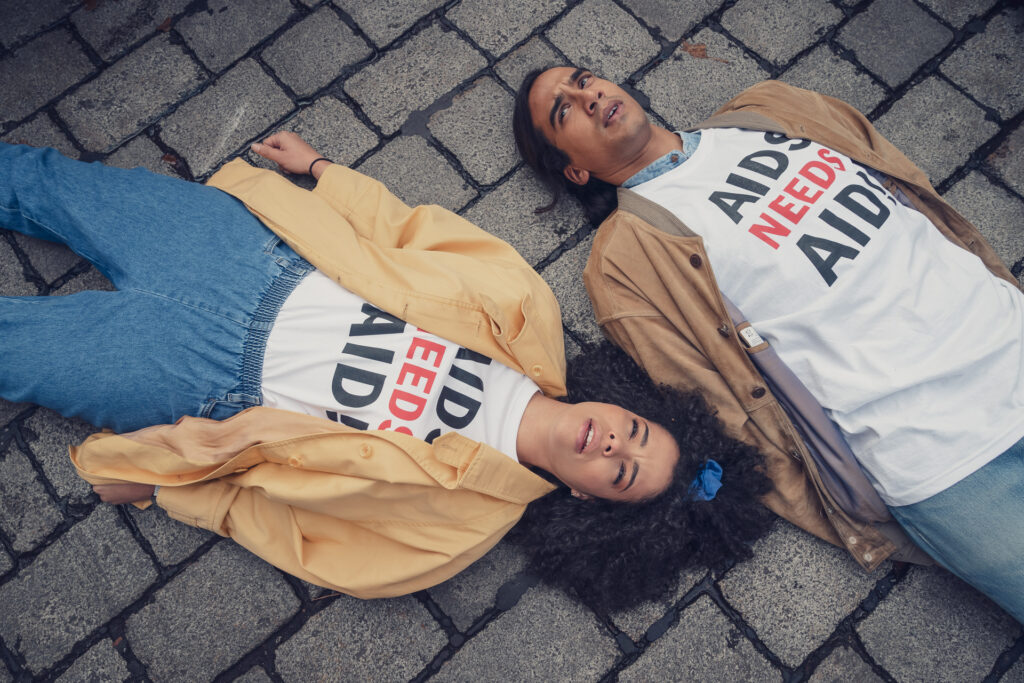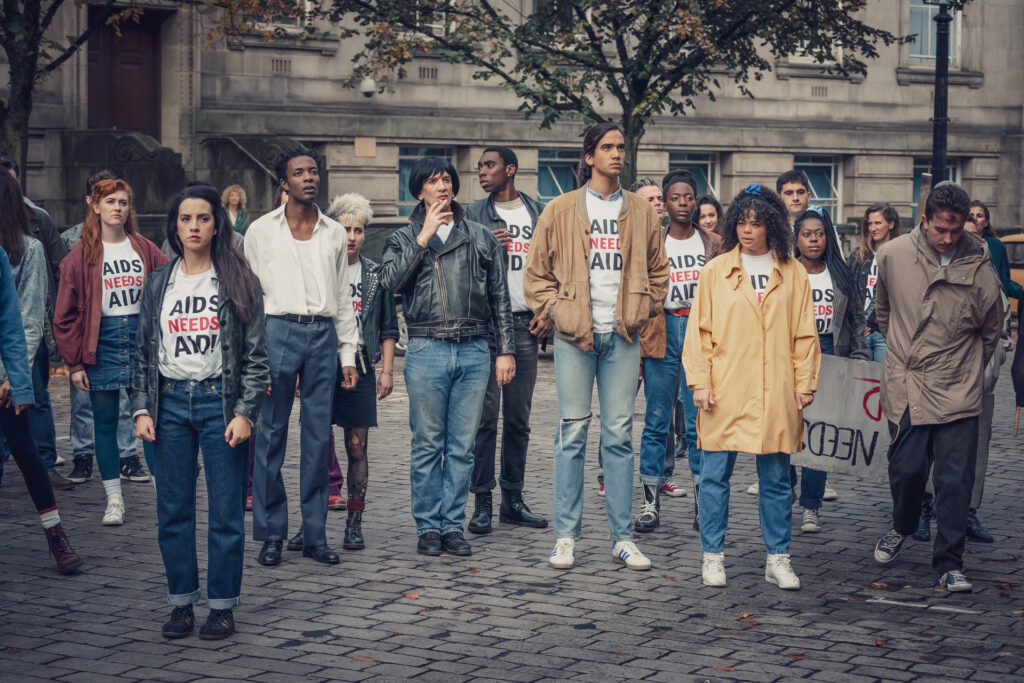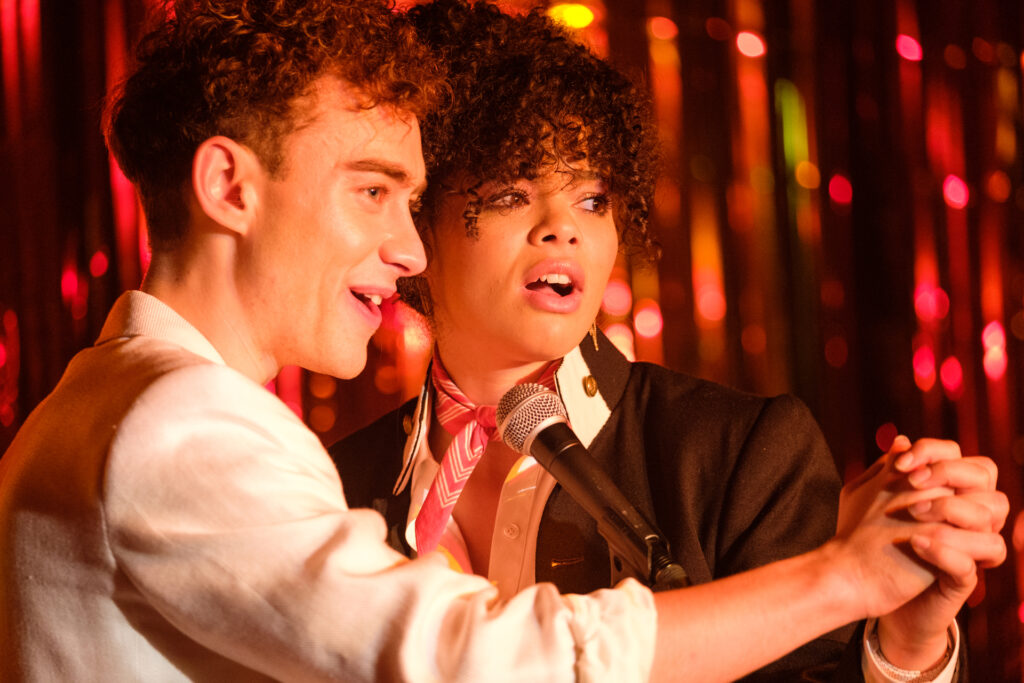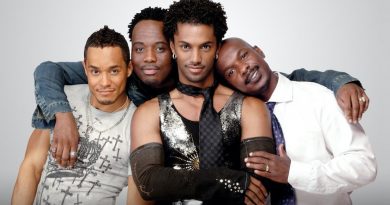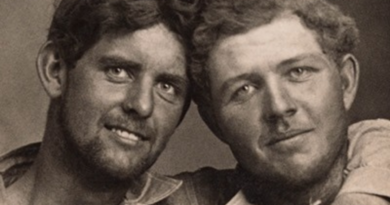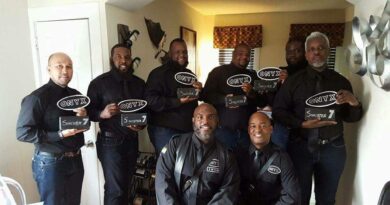OPINION: ‘It’s a Sin’s’ Jill Baxter represents the OG Mama Bear
From the moment that Jill Baxter enters her first scene in HBO Max’s limited series It’s a Sin, her welcoming eyes and warm aura sets the tone for what she is to become throughout the series; she’s a caretaker, a confidant, a sister, a mother, a best friend — all these things tied into one.
Portrayed by Lydia West in a breakthrough performance, Jill Baxter represents a part of history that’s often forgotten in stories that center gay men, especially the ones that take place at the height of the HIV/AIDS epidemic. We hear and see so much about the devastating toll that the virus had on our community and our lives in general, but never enough about the woman who stood by us all in those very dark days.
It’s a Sin, Russell T. Davies’ beautifully tragic portrayal of the lives of a group of young gay friends living in London at the height of the HIV/AIDS epidemic, has already been lauded as one of the best limited series of 2021. Ahead of its US release on HBO Max, streaming service Channel 4 in the UK announced that the series had garnered over 6.5 million views on All 4, making it the biggest ever instant box set. It’s also their third biggest series to date and most binged new series ever.
The acclaim is not surprising; the show deserves all the praise. The writing is amazing, the direction and cinematography are breathtaking, and the performances are exceptional. But the credit doesn’t just go to all the boys, though — The character Jill Baxter, based on Davies’ actual friend, actress and activist Jill Nalder (who makes a cameo in the show as Jill’s mom), has become one of the most celebrated characters on social media in the past few weeks. It almost feels as if people are screaming “Where have all the ‘Jills been?!” And they are absolutely right to do so.
When speaking to our current Ms. World Bear, Nikki Wireman, this past summer, she told the story of how she eventually found her place as one of our community’s most respected and celebrated Mama Bears. She recalls being kicked out of her house at a young age for being a lesbian, and being taken in by two Bears, who she refers to as her “Papa Bears”. “If it weren’t for them, I don’t know where I’d be,” she recalls.
She was eventually Christened “Mama Bear” by a friend at a Bear bar, and the name stuck. It was also during this time that the gloom of the HIV/AIDS epidemic began to take its toll on Nikki’s sleuth, and she began caring for some of her Bear friends who were suffering with AIDS. Through teary eyes, she remembers those very difficult days, and some of the dear friends who are no longer with her.
Though Nikki’s story is unique, it echoes many of the other stories told by women, both straight and queer, from this time period. Women like Jill Nalder, the inspiration for the character of Jill Baxter, and Ruth Coker Burks, who cared for hundreds of dying gay men in the 1980s and 1990s, are such a huge part of LGBTQ history but are often overlooked. They were the lights that lead the way through the darkest of times. They were examples of real love and compassion when families were no longer there. It’s about time that we give them their roses.
There has been some criticism recently regarding the way that Jill Baxter is portrayed in the series. Some accuse the show of not giving Jill a life outside of caring for the boys. They feel that the series spent too much time canonizing her at the expense of stripping away her own desires, relationships and struggles.
While this is a valid argument, my perspective is that we have to start somewhere. We’ve never seen a character like Jill Baxter before, written with so much care and compassion, and portrayed with such strength and vulnerability. She does all the things — She strokes their faces, kisses their foreheads and tells them everything will be ok like a mother would; she scolds a mother for not being aware of her son’s needs like a sister or family member would; and she puts herself in danger when helping them fight during a protest like a true friend or ally would. As a writer, I was impressed. As an actor, I was satisfied. As a viewer, I was captivated.
Maybe Jill was not always written as the fully realized character that some expected or hoped for her to be. Nonetheless, her character was extremely important, appreciated and, most importantly, SEEN. Jill is not a full solution to lack of representation, and I don’t think she was intended to be. She is the start of an ongoing conversation about the representation and acknowledgement of women like her who stood by the gay community in a time when very few others would. She is a call to action for other queer creators to consider these women when telling their stories. Hopefully Davies’ inclusion of Jill Baxter in this story will open the door for many others.
Jill Baxter represents those like Nikki Wireman, Jill Nalder and Ruth Coker Burks who don’t seem to get enough recognition in these stories. For all intents and purposes, let’s just call Jill Baxter a representation of the OG Mama Bear… And we love to see it.

